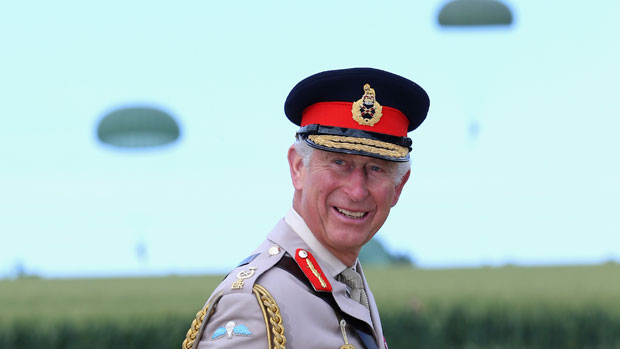Prince Charles 'lobbied Blair' on grammar schools and NHS
Constitutional reformers up in arms at news the future monarch tried to exert influence on policy

A free daily email with the biggest news stories of the day – and the best features from TheWeek.com
You are now subscribed
Your newsletter sign-up was successful
It has emerged that Prince Charles lobbied previous governments to adopt policies he supported, including trying to persuade David Blunkett to create more grammar schools when the latter was education minister.
The king-in-waiting's interventions have provoked controversy, with some campaigners saying his "black-spider memos" are "un-democratic". So what exactly has the Prince been up to?
What did Charles lobby for?
The Week
Escape your echo chamber. Get the facts behind the news, plus analysis from multiple perspectives.

Sign up for The Week's Free Newsletters
From our morning news briefing to a weekly Good News Newsletter, get the best of The Week delivered directly to your inbox.
From our morning news briefing to a weekly Good News Newsletter, get the best of The Week delivered directly to your inbox.
The Prince pushed then-education secretary David Blunkett for more grammar schools, helped persuade Tony Blair to turn against GM food, encouraged Peter Hain to make alternative medicine available on the NHS in Northern Ireland and "consorted" with Labour ministers to get tougher on climate change, according to newspapers including the Daily Telgraph.
How do we know?
The revelations came in The Royal Activist, a BBC Radio 4 documentary which was broadcast on Sunday afternoon. The programme makers spoke to Blunkett and other former ministers, including Michael Meacher and Peter Hain, responsible for the environment and Northern Ireland respectively in the early noughties.
How did the ministers feel about the Prince's intervention?
A free daily email with the biggest news stories of the day – and the best features from TheWeek.com
Hain and Meacher both said they were receptive to Charles because they agreed with him. David Blunkett also "didn't mind", despite disagreeing with the Prince on grammar schools. He told the BBC: "[Charles] was very keen that we should go back to a different era where youngsters had what he would have seen as the opportunity to escape from their background, whereas I wanted to change their background."
Blunkett added: "I can see constitutionally that there's an argument that the heir to the throne should not get involved in controversy – the honest truth is I didn't mind. If you are waiting to be the king of the United Kingdom, and you have waited a very long time, you genuinely have to engage with something or you would go spare."
Did anybody else mind?
Very much so. Graham Smith of pressure group Republic told the programme it was "completely unacceptable in a democratic society" for an unelected royal to try to change government policy. Paul Flynn, a Labour MP on the constitutional reform committee, said ministers should not have been swayed by the prejudices of an "old-fashioned billionaire farmer".
What are the black-spider memos?
Charles did - and presumably still does - his lobbying by writing to ministers. For nine years, The Guardian newspaper has been seeking access to these letters, using a freedom of information (FOI) request. The letters are known as the "black-spider memos" because of the Prince's poor penmanship.
Why haven't the memos been released?
Since the FOI request was made in 2005, successive governments have refused to release the memos. In 2012, the Attorney General Dominic Grieve vetoed a court decision to release them, saying they contain remarks which might undermine the Prince's "position of political neutrality". In March this year, says The Guardian, the Appeal Court said Grieve's decision was unlawful, and the paper's campaign continues.
What will happen when Charles is king?
That's a question which bothers Flynn, who warned that if the Prince tried to lobby ministers when he was king "it could cause a big confrontation between the monarchy and parliament". As for Charles himself, the Daily Telegraph warned on Saturday that his latest interview suggests he wants the trusts and charities he has set up to carry on when he becomes the monarch.
This, says the paper, "raises the prospect of a future King Charles III being seen as a supporter of causes, some of which may come into conflict with the views of the public or even the government of the day – a scenario that could cause complications in Britain's constitutional monarchy".